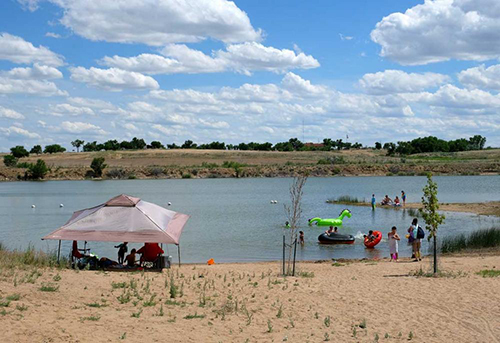Did you know that the U.S. Army Corps of Engineers is a leading provider of outdoor recreation on federally-managed public lands in the United States? With a recreation base that is primarily built around water, the Corps has a dedicated focus on water safety.

All Corps' Lakes follow local, state and federal regulations, which can be found here: Title 36 Federal Regulations and Colorado State Boating Regulations
 Boating
Boating
- All vessels must carry a U.S. Coast Guard approved wearable life jacket for each person on board, plus one U.S. Coast Guard approved throwable floatation device (cushion or ring buoy). These must be in serviceable condition and readily accessible.
- Keep at least 300 feet away from the control tower.
- No person shall operate any motorboat or vessel, nor use any surfboard or similar device, while under the influence of alcohol and/or controlled substance.
- No person under the age of 13 shall operate a motor-boat unless under the onboard supervision of an adult.
- Be aware of changing weather and water conditions, and be prepared to act if conditions become hazardous.
- When winds of 15-20 mph are forecast or blowing, boaters are cautioned to stay off of the lake.
- Never allow people to ride on the bow, seat backs, or gunwales of a vessel. Boater's legs shall not hang overboard at any time.
 Swimming
Swimming
-
Never depend on inflatable or foam toys, rafts, or inner tubes to keep yourself afloat. If they are punctured, or if you fall off, you are in immediate danger. The wind direction and speed can change suddenly. Persons using floatation toys may suddenly be blown into deeper water.
-
It is mandatory to wear a U.S. Coast Guard approved life jacket when using any type of floatation device.
-
Scuba diving, snorkeling and swimming are permitted at your own risk, except where prohibited by signs or buoys.
-
No lifeguards are on duty. Please do not swim alone and watch children closely.
Click here for more Water Safety Tips